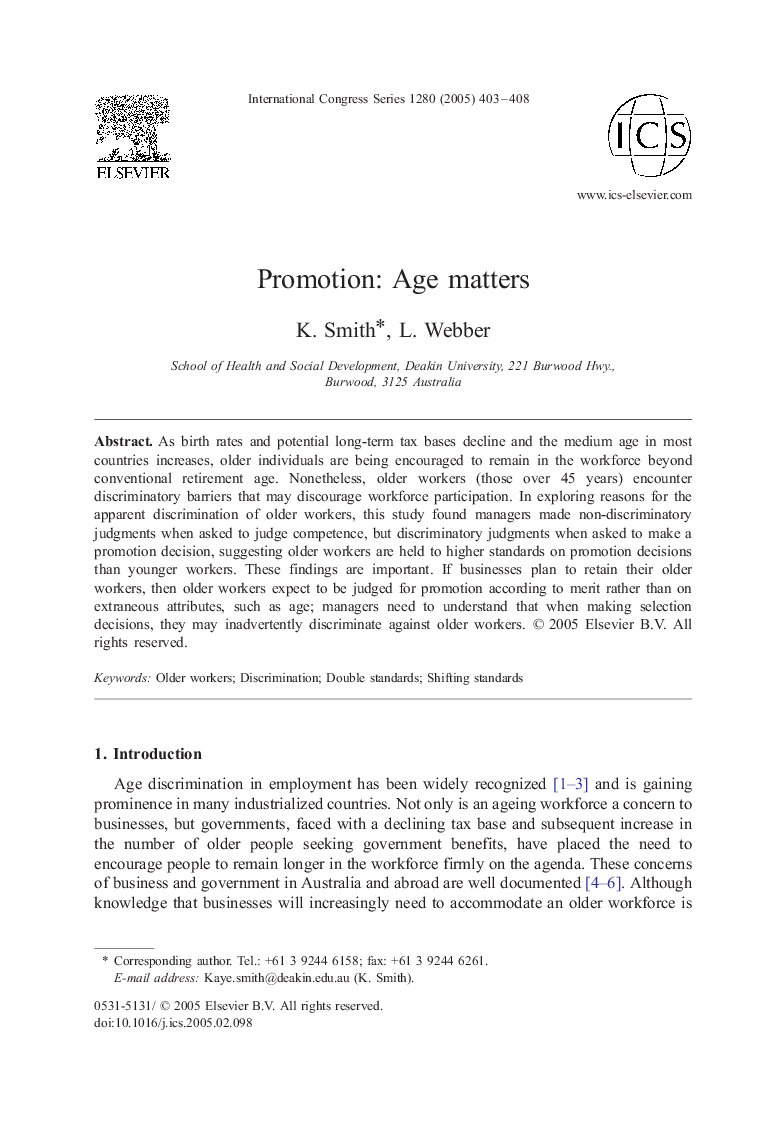| Article ID | Journal | Published Year | Pages | File Type |
|---|---|---|---|---|
| 9021370 | International Congress Series | 2005 | 6 Pages |
Abstract
As birth rates and potential long-term tax bases decline and the medium age in most countries increases, older individuals are being encouraged to remain in the workforce beyond conventional retirement age. Nonetheless, older workers (those over 45 years) encounter discriminatory barriers that may discourage workforce participation. In exploring reasons for the apparent discrimination of older workers, this study found managers made non-discriminatory judgments when asked to judge competence, but discriminatory judgments when asked to make a promotion decision, suggesting older workers are held to higher standards on promotion decisions than younger workers. These findings are important. If businesses plan to retain their older workers, then older workers expect to be judged for promotion according to merit rather than on extraneous attributes, such as age; managers need to understand that when making selection decisions, they may inadvertently discriminate against older workers.
Keywords
Related Topics
Life Sciences
Biochemistry, Genetics and Molecular Biology
Molecular Biology
Authors
K. Smith, L. Webber,
